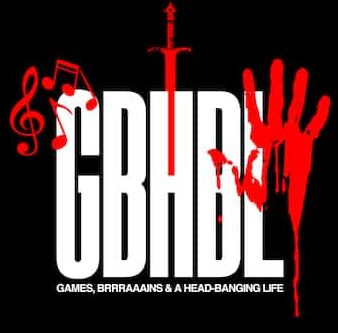Bankroll Management For Safe Gambling
Security breached accounts, ranging from Twitter pages to customer data at bigger stores, are often reported. What does that mean, exactly? The word hacking may implore up images of a dim room filled with computer geeks attempting to steal your credit card data. In actuality, this is not the reality. Easy approaches are used to breach the bulk of online accounts. The good news is that you can escape all of these dirty tricks. So, how secure are your https://newcasinos-au.com/games/roulettes/ accounts from being hacked?

In Internet security, like in any other circumstance, knowledge is power. Once you learn how your accounts may be hacked, you will be adequately equipped to secure your funds and future activities. Remember that your gambling bankroll is as safe as you create it. We’re not talking about matters like keeping safe from predatory gambling websites that rip off their consumers — staying secure from such predators is another matter completely.
A Complex Passcode is Critical
Your passwords are the keys that unlock the doors to your internet account if you deem it secure. Because locks are the most susceptible feature of any safe, safecrackers (or, in our case, hackers) will use them to get access to your account. Your passcode is the most powerful instrument you have in the defence against accounts theft. So how exactly did your password get into the unauthorised hands in the first place? Sure, they could try every letter combination until they found the perfect one, but it would take a lot of time and work, far more than the $200 in your bank account.
Furthermore, reputable online sportsbooks and casinos utilise password security software to prevent customers from trying more than a few times. However, the majority of the time, hackers obtain access to your account using information that has been exposed as a result of prior assaults. This information is made available to nefarious people on the internet, who then attempt to steal from you by using the same password on all of your accounts.
Brute force de-encryption, in which a hacker obtains access to your computer and extracts the password forcefully from existing data, is a lot more entertaining to watch on TV than password-hacking, but it’s not employed very often. For example, hackers can link a hacked password from your accounts to your gaming site account and gain immediate access.
How to Make a Strong and unique Password for Your Online Casino Accounts
- A solid passcode for your internet gaming real money casinos accounts should be distinctive, to begin with. That means you should have a passcode for each of your online accounts.
- Avoid calling people, places, and objects by their actual identities. Using recognizable names is a terrible idea since if anything exists, someone else can probably find out about it or guess about it.
- Finally, make it increasingly challenging for passcode crackers by using a combination of letters, digits, symbols, and uppercase. The more complex your passcode is, the more difficult it will be for a hacker to duplicate or figure out.
Safety Measures for Your Email Account
Consider your email address to be your home address. It is, for all intents and purposes, your online home. An attacker who gains access to your home base can read your email and financial information and even request and change passwords for bank accounts, social media pages, your website, online slots you play, and everything else you do online. Therefore, it’s important to take precautions when it comes to your email account. Protect your email account in the same manner that you protect your residence. Yes, choosing a unique and difficult-to-guess password (as stated above) is critical, but so is changing the password on a regular basis and making sure that no one, not even a close family member, knows how to access it.
For Each Account, use a Different Password
This appears to be such an easy approach to protecting oneself that you’d think everyone would be doing it by now. Consider having the same lock and key for your house, car, office at work, and your children’s college accounts. How safe do you think you’d feel? You’d lose control of your entire life if you lost the key. It makes sense for consumers to use the same password for many accounts since it simplifies their lives. However, just like folks who leave their front door open, there is a cost to being lazy. Because of this, password database breaches are prevalent and harmful.
Leaks from high-profile companies like LinkedIn, eHarmony, and Target are only the tip of the iceberg. Any website that stores your password, even Mom & Pop’s Nursery, which has nearly no encryption, may be abused to reveal your personal information. In addition, if you use the same passcode on several accounts, even the finest password won’t protect you because all it takes is a single database breach for crackers to start using the same combination on your other accounts. So always use different password combinations.
Keep an Eye out for Malware
Malware has been installed in your computer’s memory that you did not install, generally intending to steal information from you or cause damage to your system for no reason.
Malware may be included in seemingly harmless downloads. For example, some marketing firms utilise adware, a virus, to track your activities and send you advertising for things they’re pushing.
Key-loggers are the most deadly malware for anyone with funds in online gaming accounts. These apps operate invisibly in the background of your computer, logging every key you press. The goal is clear: someone scans through the log and extracts information such as passwords, usernames, PINs, and other credentials. The data is then transmitted to a hacker someplace far away, either to a file for later access or through an Internet connection.
How does malware manifest itself? Outdated versions of add-ons, such as Java, are a prevalent issue. For example, a hacker can attach malware to your computer using Java applets if you don’t update your Java settings. This wouldn’t happen if you had the latest software. Third-party downloads are also a popular source of malware — that record you illegally downloaded may contain a piece of code meant to capture your email and password combination. The secret is to invest money in a decent antivirus product, keep your software up to date, and never download anything from an untrustworthy source.
Defend Yourself Against Phishing
Since the beginning of the Internet, a technique known as “social engineering” has been employed to steal data. It’s the technique of appearing as an authoritative figure to induce individuals to freely give away their personal information, also known as phishing. For example, you may receive an email from your bank that directs you to a legitimate-looking website where you may enter your account number, PIN, and other information. The information you provide is saved and utilised to send cash.
Someone claiming to work for the site may send you a message on Facebook or another social media site. They attempt to convince you that you should submit your passcode or other personal information to verify yourself. This scam is more common among the elderly, although it may affect people from many walks of life. For example, while exploring the Internet, you find a site that offers you something beneficial, such as a free gaming subscription or free money at an online casino. The catch is that to receive your prize, you must disclose some sensitive personal information, such as your email address and password.



